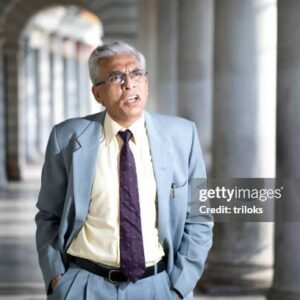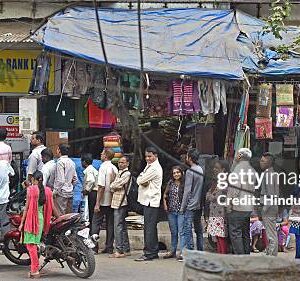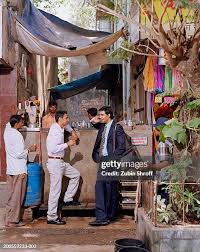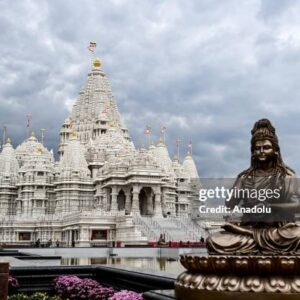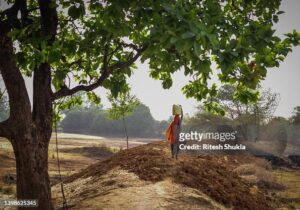
There goes an idiom,” a person cut off from the roots.” This we hear in mundane world. This carry an another facet of meaning, a person cut off from the roots is destined to live a life with no stability. In old period of time, in wider sense this idiom had a prevalence regard a man who happened to march away at a distant place to make his destiny. It was but natural, in that drive at a new place he was but to get acclimatized in new ambiance and metamorph himself accordingly. In narrower sens, the soil or land you have been attached for long and if you begin to keep yourself aloof from that, despite the fact still staying at the same place ; even in that condition, this idiom has got an application.
This is ostensible by the present time scenario of fast growing phenomenon of “Urbanization.” This process taking place in the most of the Indian villages adjacent to the city areas or even afar from that. Here, we need to describe both the situation of a man, that is, when he goes afar from the native place in search of a destiny and in case he still living at his old place. In the first case, when he lands upon at a distant place in search of job or vocation, he transforms himself as per needs of the time and place. There he adopts the vernacular of the place, local habits and other prevailing norms of that place. After lapse of some years, he by himself realizes, he is not that kind of person, once he happened to be years ago.
The intent of the blog in local aspect
Here, I am explaining this principle of “cutting off from roots,” regard people who had not been shifted from the native place. And all this is axiomatic, and an observational output of fast growing urbanization. Until the day, when there existed ” no factor of urbanization in our Indian village sides, every one had had a deep attachment with his land and soil. He was given to grow each and every product to sustain his life from his land. To gain the product, he was to till and cultivate his land ; sow the seeds and protect the germinating seeds and growing crop, irrigate that and finally he had to harvest the fruit of his toilsome labor and bring back to home. This fruit might be in shape of grains or cash. This process forced him to remain in constant touch of his soil in shape of dust or dirt. Since his life majorly depended upon nature in this or that way. To obtain the grains,fruits, green grocery, milk product and so many other things, he was to tame the cattle ; for fuel wood he was to visit the jungle and explore the wood resources.
Then stepped in the wave of urbanization. At the beginning, it was so slow, hardly noticeable. In its primary phase, asphalt roads got introduced, then came the facility of public transportation and electricity. Till then, villages had ably maintained its old fashioned prototype format. With the introduction of these facilities, village people began to visit city side regularly. With an enthusiasm and curiosity, he started to use the new fashionable home appliances. Some people too got enrolled as workers in city side industrial areas or in other enterprises. This made him to get connected with new means of entertainment and modern education as well.
The modern education had some revolutionary impact in a positive sense, but side by side, it dissuaded new generation from the agriculture profession. Even, if some one had had some inclination for the agriculture drive, he got harnessed with modern equipments ( although, it was not a bad thing). The practice of using of old fashioned organic manure got replaced by chemical fertilizer and for tilling of land, tractor came into use widely. The day came when conventional means of tilling of land by oxen totally became extinct. With this, the taming of bullocks became a burden. Not only this, in old time for milk product the fashion of milk producing cattle like cows and buffalo were in vogue, but the introduction of packed dairy products too removed the cattle from the yard of the villagers.
Not so long ago, a villager who used to grow the green grocery in his garden to suffice his homely needs, he too abandoned that rich tradition. In stead, he became prone to buy all these from the city bazaar or outside vendors visiting the villages. Villagers voluntarily chose to handicap himself. These phenomenal changes germinated the seeds of “taking agriculture as a burden” in the mind of villagers. Meanwhile, the wave of globalization too hit the social system and trend of “real estate business” flooded in the periphery of urban sites. At present, a good deal number of villages in our India have witnessed such a huge expansion of city that no village in the “old sense” exist there now. Villages old names are maintained merely officially in revenue records and for use of postal address only. In fact, every village has got new names based upon newly designed colonies.
The psychological effect
What psychological impact all these changes delivered is the intent of this blog. Till the day, people of past generation existed, they had had an intrinsic and conventional attachment to the soil of the land. They had their own conventions, ethics, norms and social values. A deep sense of cordial bond they maintained which helped unite people of “clusters of villages” of a big region. People of adjacent and far away villages had acquaintance and inter exchange with one another.
But our present new fashioned generation is cut off from that cordial bond. New culture is basically based upon materialistic ideology. No any feeling of old timed cordial bond is visible now.

Long back, people used to live a simple life and element of “interchanging love and affection” played the vital role. Now the element of capitalism is the major factor in dealing with man to man. This factor contains a big element of superficiality in itself. Besides, the new means of entertainment introduced by new technology has created a “vacuum” in relations amid people. With in a family, every person is living with in his own island. In fact, the social media has made “upside down” and coined a new definition of living culture.
The old generation, that survived on the element of cordial bond is now is at the verge of extinction. They have grown so poor in number and are like relics of the past. The new generation with its sleeves up is tended to send this old generation into the oblivion. The artificial life has more charm for our young generation. Perhaps, this is the law of transformation in scientific terminology, which when takes place, makes us lose the prosperous supporting base of our rich heritage. Penned by — Vinay Pharasi —–

